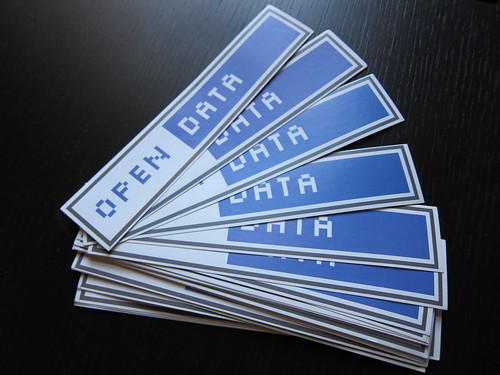We welcome the Shakespeare review as a time to reflect, coming as it does at a time of great growth in open data in government and the public sector.
The UK has lead the way with government taking a pioneering stance on open data policy in recent years, and this report sets out key recommendations for how to best take forward this work.
It is particularly good to see acknowledgement that there is a “difference between a commitment to transparency and a true National Data Strategy for economic growth” as it is clear that many of the benefits of open public sector information will go beyond the economic.
As the Open Knowledge Foundation has long emphasized:
The best thing to be done with your data will be thought of by someone else
Shakespeare recognises this with the comment that “we cannot always predict where the greatest value lies but know there are huge opportunities across the whole spectrum of PSI.”

Getting more data released quickly, without agonising over quality concerns, is an excellent recommendation and we look forward to seeing this in practice. Alongside this we welcome the demand for high quality information in the National Core Reference Data plan, including key entity data; such reference data, following clear open standards, will transform what can be done with UK data. The request that Trading Funds should remove restrictive PSI licensing and work towards releasing all raw data for use and reuse is particularly warmly welcomed.
We are pleased to see consideration being given to privacy and confidentiality issues; our definition of open data has always excluded personally-identifiable information, but with greater data collection than ever before, we acknowledge the challenges this can bring for data publishers. The demand for realistic and pragmatic consideration of privacy and confidentiality is welcomed, and best practice guidelines will be very helpful in assisting data publishers here. In addition we hope to see key security and privacy sector experts engaged in this as there are tough technical challenges around anonymisation, aggregation and sandbox use, and deep technical understanding is needed to fully appreciate the risks and limits of such systems, and to create sensible guidelines.
We are also delighted to see open access mentioned in the report; open access to publicly-funded research data and papers has been a long-standing tenet of the Open Knowledge Foundation’s work. Shakespeare notes that “even today, access to academic research that has been paid for by the public is deliberately denied to the public, and to many researchers, by commercial publishers, aided by university lethargy, and government reluctance to apply penalties; thereby obstructing scientific progress.” We can, and must, do better here.
We applaud the call for more data scientists and greater statistical skills at all levels; stronger data awareness and skills are critical for all the benefits of open data to be realised. In particular, the recognition that interactive and workshop methods can be most effective at teaching data skills is well aligned with our own School of Data and long standing culture of hackathons and developer engagement. The more teaching and training around data, alongside other key STEM areas including maths and technology, the better.
Finally, it is great to see that the economic value of open data will be assessed through research and audit, but at the same time it is vital to be realistic about the timescales for significant change and impact in this field. We think on a timescale of decades to see the full benefits and effects of the new open approaches to creation, sharing and reuse of knowledge, and government and others must be realistic about what will be achieved and how quickly, to avoid disappointment.
Open data is valuable to us socially and culturally as well as commercially, but it is only one part of a solution, and we need to work on the other key elements, including institutional change, tools, skills and awareness, which are also necessary conditions to realise the full benefits of openness. These other elements may be harder, and more expensive, than the release of data – we should still release more open data, and we are glad to see this report affirming this and encouraging data skills alongside – but the journey is far from over.
As Shakespeare puts it:
“It is now time to build on the very positive start we have made on open data with a more directed, more predictable engineering of usable information. Obstacles must be cleared, structures defined, and progress audited, so that we have a purposeful, progressive strategy that we can trust to deliver the full benefits to the nation.”
If you’re interested in open data and you’d like to join our global community of open government data advocates, you can join our open-government mailing list:
Laura is CEO of the Open Knowledge Foundation, and Co-Founder and Director of Makespace. She has worked extensively in technology, innovation and leadership roles including at AT&T Labs, AlertMe.com and True Knowledge. Laura holds Masters and PhD degrees from the University of Cambridge, received the Royal Academy of Engineering Leadership Award and a NESTA Crucible Fellowship, and is a Chartered Engineer.








